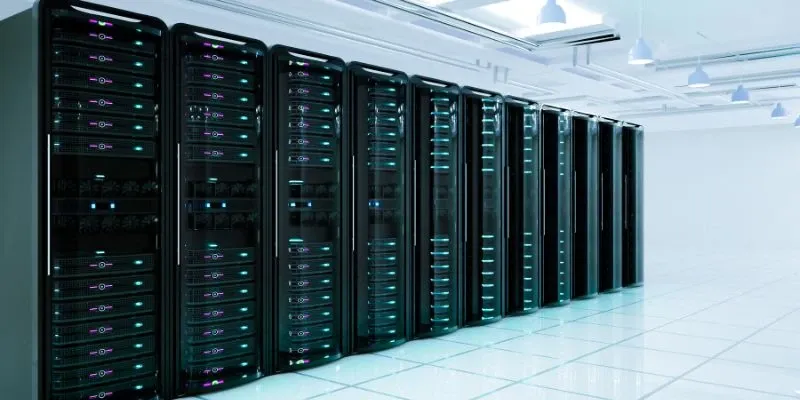Every IT leader eventually faces the same challenge: what to do with racks of decommissioned servers. Letting them sit idle in storage wastes capital, consumes valuable space, and poses ongoing security risks. On the other hand, when businesses sell used server equipment, they can unlock hidden value, strengthen data security posture, and contribute to sustainability goals.
This guide explains why organizations should sell used server hardware, how to prepare equipment for resale, and where to find the best buyers, while maximizing ROI and protecting sensitive data.
Why Sell Used Server Equipment?
1. Free Up Capital and Reduce TCO
Servers lose value quickly. Idle equipment depreciates month by month and may even continue to draw power if left connected. By leveraging a server buyback program or an IT asset disposition (ITAD) partner, companies can turn outdated hardware into cash that funds new projects, whether that’s cloud adoption, storage upgrades, or modernized infrastructure.
When organizations budget for residual value recovery, they avoid large, one-time capital shocks and instead gain predictable lifecycle costs. In some cases, businesses offset a substantial portion of their next refresh cycle just by selling old servers.
2. Reduce Data Breach Risks
Retired servers aren’t just metal and silicon, they hold sensitive information long after files have been deleted. Unless businesses properly sanitize drives, they risk compliance violations, lawsuits, and reputational damage.
The National Institute of Standards and Technology (NIST) SP 800-88 guidelines define three secure sanitization methods:
- Clearing: Overwriting data with approved software tools
- Purging: Using advanced techniques such as degaussing to make data unrecoverable
- Destroying: Physically shredding or melting drives to ensure permanent destruction
The stakes are high. According to IBM’s Cost of a Data Breach Report 2024, the global average cost of a data breach is now $4.88 million, a 10% increase from 2023. In the United States, the average jumps to $9.36 million per incident, the highest in the world. By sanitizing servers before resale and maintaining a secure chain of custody, organizations can avoid these costly outcomes.
3. Support Sustainability and the Circular Economy
E-waste is the world’s fastest-growing waste stream. The 2024 Global E-waste Monitor reports that 62 million tons of e-waste were generated in 2022, but only 22.3% was formally collected and recycled. At current trends, that figure will rise to 82 million tons by 2030.
Selling servers back into the market or donating them for reuse keeps valuable assets in circulation, reduces demand for new raw materials, and prevents toxic metals from entering landfills. According to the UN report, scaling global recycling efforts could create $38 billion in net benefits by 2030, proving that sustainability also makes business sense.

Preparing Servers for Sale
Selling used server hardware isn’t as simple as putting it on a classifieds site. To maximize resale value and ensure compliance, IT teams should follow a structured process:
Where to Sell Used Servers
Finding the right buyer is as important as preparing the equipment. Here are the main options:
- Certified ITAD and Remarketing Providers
- Look for firms with R2v3 or e-Stewards certifications.
- They provide chain-of-custody tracking, certificates of data destruction, and environmental compliance.
- Online Marketplaces and Broker Networks
- Specialized platforms connect sellers with global buyers searching for enterprise hardware.
- Use targeted search phrases like “sell used servers for cash” or “used server resale program” to find legitimate buyers.
- System Integrators and Managed Service Providers (MSPs)
- Some integrators purchase used servers to serve budget-conscious clients.
- This route may offer better pricing but puts more responsibility on the seller for data handling and logistics.
- Donations and Repurposing
- If resale value is low, donate servers to schools, nonprofits, or community tech programs.
- Beyond sustainability, donations may qualify for tax deductions.

Tips to Maximize ROI
- Bundle Smartly: Selling racks, switches, and PDUs as a package appeals to buyers looking for turnkey solutions. However, CPUs, memory, and storage drives may yield higher prices when sold individually.
- Monitor Market Timing: Hardware resale values fluctuate with refresh cycles and supply chain trends. Demand for slightly older processors often spikes when a new generation is released.
- Offer a DOA Guarantee: Even a 30-day guarantee increases buyer confidence and allows for stronger pricing.
- Plan for Logistics: Servers are heavy and expensive to ship—negotiate terms for freight, insurance, and customs fees. Secure palletizing reduces transit damage.
Environmental and Social Impact
The decision to sell used server equipment extends beyond financial gains. It demonstrates corporate social responsibility (CSR), reduces carbon footprints, and promotes a circular economy. With proper ITAD partnerships, businesses can measure and report their environmental impact, helping them meet ESG goals and appeal to eco-conscious stakeholders.
Furthermore, partnering with nonprofits to repurpose equipment for education or workforce development expands digital access and strengthens brand reputation.

Closing the Loop on Server Lifecycles
When approached strategically, selling used server equipment transforms a disposal challenge into a business opportunity by:
- Recapturing capital through structured resale,
- Protecting sensitive data with NIST-compliant sanitization, and
- Supporting sustainability through reuse and recycling,
Companies can strengthen both their balance sheet and their brand. With data breach costs climbing past $4.88 million per incident and global e-waste projected to hit 82 million tons by 2030, proactive IT asset disposition has never been more critical.
When you sell used server equipment through ReluTech, you don’t just clean up your balance sheet and clean up space, you unlock an upfront cash infusion. That money can immediately be repurposed to fund strategic initiatives like cloud migrations, AI adoption, or critical IT projects without waiting on budget cycles. Our team handles secure data sanitization, certified resale, and logistics, so you recover maximum value quickly and safely.
Talk to our team today and see how much capital you can free up for next cloud, AI, or IT project.
